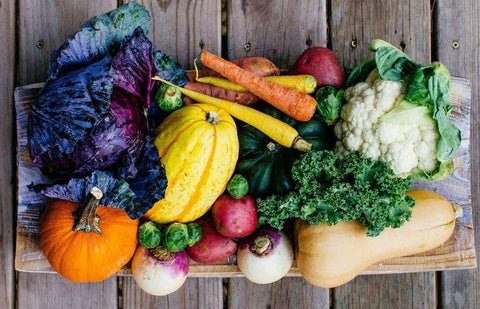A healthy and balanced diet has a positive effect on the proper functioning of our entire body, but there are some nutrients that are especially beneficial for women's health.
Women have a different body composition than men, with less muscle mass and a higher percentage of fat, and our metabolism tends to reserve energy rather than expend it at certain times in our lives, especially during pregnancy and menopause . For this reason, we need to adjust our energy requirements. In addition , our body undergoes important physical and hormonal changes throughout the different stages of life , which require paying special attention to our diet and ensuring or reinforcing the intake of some essential nutrients.
Our nutritionist explains what they are and why it is important to include them in our diet.
Calcium
It is essential for the correct development of bones and teeth and has a structural function. In women, it is also essential to ensure a good supply during adolescence, pregnancy, lactation and menopause, when bone loss accelerates (we can lose up to 50%). There are many foods that contain calcium, but to promote its absorption, a good supply of vitamin D is also necessary.
Good sources of calcium are: raw, unsalted almonds, sesame, chia, tofu, green beans, Bol choi, dried figs, broccoli, sardines, dairy products (fresh cheese, milk and yogurt, preferably semi-skimmed).

Vitamin D
It is stored in fatty tissue and helps the body to assimilate calcium . A long-term deficiency can be harmful, because in addition to promoting bone health, this vitamin also regulates blood pressure levels, insulin secretion, serotonin and many other things . However, our body cannot produce it naturally if it does not receive ultraviolet radiation. For this reason, it is advisable to expose the skin to the sun daily for 15 to 30 minutes without protection during the hours of least intensity (from 9:00 a.m. to 12:00 p.m.).
There are very few foods that contain vitamin D naturally. The best source is fatty fish such as salmon, tuna and mackerel, as well as eggs, dairy products (whole or semi-skimmed) and oily fish in general. There are also many foods enriched with this vitamin, such as breakfast cereals, drinks and yoghurts.
Find all the information you need at: https://ods.od.nih.gov/pdf/factsheets/VitaminD-DatosEnEspanol.pdf

Magnesium
It helps balance the nervous system, regulates muscle function, blood sugar levels and blood pressure . A deficiency can lead to irritability, fatigue, loss of appetite, sleep problems or muscle cramps, especially in the days before menstruation. In addition, in the long term, a lack of it can cause hypertension and promote the development of diabetes, osteoporosis and migraines.
Good sources are: dark chocolate (75% cocoa minimum), sunflower seeds, raw almonds, legumes (beans, chickpeas, lentils), nuts, quinoa and oats.
Phytoestrogens
They are biologically active compounds that are naturally present in plants and that exert effects similar to those of female estrogens. These hormones, in addition to being essential for the development and proper functioning of the reproductive system, have many other functions in our body: they intervene in the metabolism of fats and cholesterol, lower blood pressure, distribute body fat, regulate sleep, and, together with androgens, stimulate libido , which is why their consumption is considered beneficial during menopause, when the level of female estrogens decreases .
Good sources are nuts and seeds, legumes, dried fruits (dates, dried apricots, raisins), fruits (strawberries, blueberries, raspberries, etc.), vegetables (pumpkin, broccoli, fennel, cabbage, onions, etc.), aromatic herbs and flax seeds.

Potassium
It is essential to reduce blood pressure . In general, and especially as we get older, women have a higher risk of suffering from cardiovascular problems. For this reason, it is important to reduce the amount of salt we consume daily (be careful because there are many foods that have a high percentage of “hidden” salt such as canned food, sausages, snacks, chicken broth or flavour enhancers) and ensure a good intake of magnesium, which helps balance the sodium-magnesium ratio in our body. If there is a deficiency, it can also cause cramps and increase nervousness.
Good sources include bananas, potatoes (boiled or steamed), broad beans, cabbage, kiwi, mushrooms and rye bread.




Comments (0)
There are no comments for this article. Be the first one to leave a message!